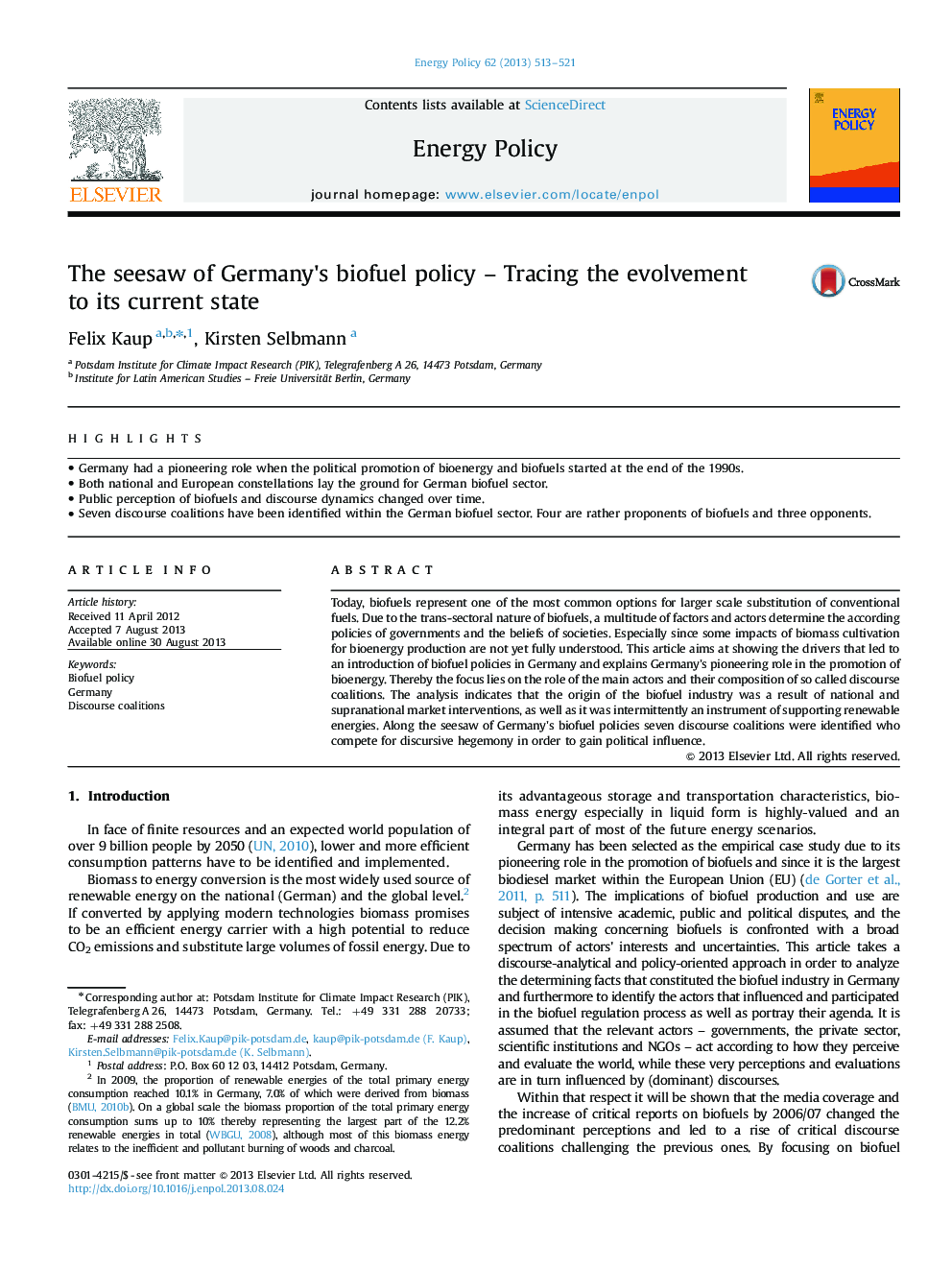| Article ID | Journal | Published Year | Pages | File Type |
|---|---|---|---|---|
| 7404100 | Energy Policy | 2013 | 9 Pages |
Abstract
Today, biofuels represent one of the most common options for larger scale substitution of conventional fuels. Due to the trans-sectoral nature of biofuels, a multitude of factors and actors determine the according policies of governments and the beliefs of societies. Especially since some impacts of biomass cultivation for bioenergy production are not yet fully understood. This article aims at showing the drivers that led to an introduction of biofuel policies in Germany and explains Germany's pioneering role in the promotion of bioenergy. Thereby the focus lies on the role of the main actors and their composition of so called discourse coalitions. The analysis indicates that the origin of the biofuel industry was a result of national and supranational market interventions, as well as it was intermittently an instrument of supporting renewable energies. Along the seesaw of Germany's biofuel policies seven discourse coalitions were identified who compete for discursive hegemony in order to gain political influence.
Related Topics
Physical Sciences and Engineering
Energy
Energy Engineering and Power Technology
Authors
Felix Kaup, Kirsten Selbmann,
